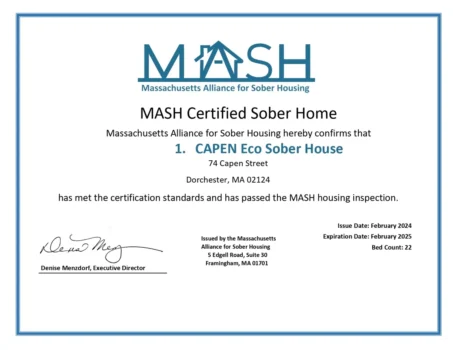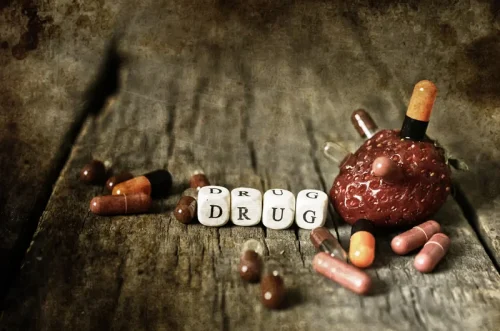How Alcohol Causes Inflammation
How Alcohol Causes Inflammation

Individuals with AUD are often deficient in one or more essential nutrients including vitamin A, vitamin C, vitamin D, vitamin E, folate, and thiamine (Hoyumpa 1986). Amongst a group of 30 male and female patients who consumed at least 100g of ethanol daily (on average 51% of total caloric intake) for at least 5 years, all subjects were deficient in vitamin E and folate, 83% were deficient in vitamin C, 80% were deficient in vitamin A, and 73% were deficient in thiamine (Manari, Preedy et al. 2003). These micronutrients have been shown to play an important role in immune system homeostasis and response to infection (Mora, Iwata et al. 2008). The intestinal microbiota (IMB) is the set of microorganisms that inhabit our intestines.
- Furthermore, it has been described that alcohol consumption would also have effects on other microbiota derived metabolites, leading to increases in branched-chain amino acids [77] and peptidoglycans [78].
- Inhibitors of epigenetic signals, like anti-inflammatory treatments, can reverse and prevent binge drinking adaptations across glia and neurons, as well as behavioral changes in alcohol drinking, anxiety, and cognition.
- The immune system is typically categorized into the innate and adaptive immune response systems, both of which are essential components in the body’s defense against pathogens.
- Ria provides access to anti-craving medications, weekly coaching meetings, expert medical advice, and more—all from an app on your phone.
How Alcohol Affects Your Immune System
- However, alcohol may have a dual effect on B-cell function because some studies have reported that B-cells also could be activated in alcohol-consuming people (Drew et al. 1984).
- In addition to pneumonia, alcohol consumption has been linked to pulmonary diseases, including tuberculosis, respiratory syncytial virus, and ARDS.
- 2The different immunoglobulin classes are involved in different aspects of the immune response.
- Numerous studies have demonstrated alcohol-related impairment of T-cell responses to various challenges.
Neurotransmitters, peptides, as well as cytokines and HMGB1 relay signals across cells within a brain region that impact cellular responses to ethanol, confounding and complicating generalizations. Across brain regions, however, shifts in cell transcriptomes occur, providing markers of pathology and therapeutic targets. Alcohol intoxication alters neuronal networks that markedly impact impulsiveness, balance, and other important brain functions. Although acute intoxication has immediate dangers, alcohol use disorder (AUD) has a lasting impact on individuals and families. AUD is considered a chronic relapsing disease linked to cycles of intoxication often initiated in adolescence that change neuronal networks and personality.
The Timeline of Alcohol Withdrawal
Clinical and preclinical studies are currently investigating microglial and brain pro-inflammatory antagonists and offer great promise for improved AUD treatments.4 These findings suggest that AUD changes in brain networks and behavior involve HMGB1, TLRs, and other innate immune signaling molecules. Relationships between the innate and the adaptive immune systems and gut microbiota. (A) The innate immune response is a very fast, pathogen-non-specific, first line of defense mechanism. It is mainly composed of macrophages, dendritic and natural killer cells, as well as different forms of granulocytes.

Can alcohol make inflammation worse?

For example, a 2015 study in the journal Alcohol found that binge drinking can reduce infection-fighting white blood cells known as monocytes in the hours after peak intoxication, essentially weakening your immune system. “Alcohol has diverse adverse effects throughout the body, including on all cells of the immune does drinking alcohol weaken your immune system system, that lead to increased risk of serious infections,” said Dr. E. Jennifer Edelman, a Yale Medicine addiction medicine specialist. Alcohol can either activate or suppress the immune system depending on, for example, how much is consumed and how concentrated it is in the various tissues and organs.
- People who drink more alcohol have a higher risk of developing alcohol-related cancer.
- Some of these effects, like a relaxed mood or lowered inhibitions, might show up quickly after just one drink.
- In other studies, chronic alcohol feeding impaired Th1 responses to a hepatitis C virus protein, a defect that was hypothesized to result from impaired secretion of IL-2 and GM–CSF by dendritic and T-cells (Geissler et al. 1997).
- In contrast to the inhibitory effects of acute alcohol treatment (up to 24 hours), prolonged exposure of human (men and women) peripheral blood monocytes to 25mM ethanol for 7 days increased LPS-induced TNF-α production without affecting IL-10 production (Pang, Bala et al. 2011).
- Granulocytes are white blood cells (i.e., leukocytes) that derive their name from the large granules that are visible when the cells are stained for microscopic analysis.

The effects of alcohol on both cell-mediated and humoral immunity have been well-documented since the early 1960s, wherein researchers found that alcohol abuse significantly reduced both CD4 and CD8 T-cell counts. In the 1990s, researchers confirmed this finding and added that heavy male drinkers who consumed between 90 to 249 alcoholic drinks per month had significantly lower B-cell counts as compared to both moderate male drinkers who consumed between 30 and 89 drinks each month and light drinkers who consumed less than ten drinks each month. Although the innate immune response is immediate, it is not specific to any given pathogen.
Sexual and reproductive health
Moderate alcohol use may not weaken the immune system, but you should be careful
- They add that they will focus on how this can be done in vulnerable populations, such as the elderly, who are often known to have ineffective vaccine responses.
- If you drink, you’ve probably had some experience with alcohol’s effects, from the warm buzz that kicks in quickly to the not-so-pleasant wine headache, or the hangover that shows up the next morning.
- These changes in cellular signaling, in turn, are linked to alterations in neurocircuits impacting mood, hyperkatifeia symptoms, impulsivity, and perseveration, all of which can promote alcohol drinking and contribute to the development of AUD.
- Increasing evidence suggests that the neuroimmune system is involved in brain function, regulating synapses and excitability as well as elements of learning and memory.
- Alcohol increased gut permeability affects mucosal immunity and allows the translocation of bacterial or some critical components of their membrane into the bloodstream [47], reaching other organs that can be damaged.
Higher Vulnerability to Disease
